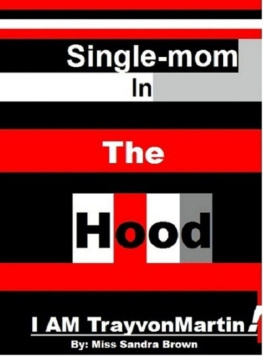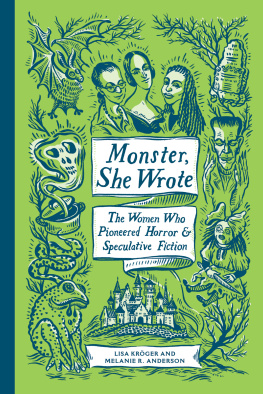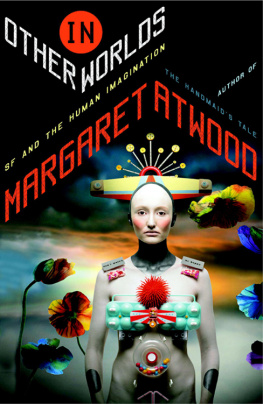First published 2011
by Routledge
2 Park Square, Milton Park, Abingdon, Oxon, OX14 4RN
Simultaneously published in the USA and Canada
by Routledge
270 Madison Avenue, New York, NY 10016
Routledge is an imprint of the Taylor & Francis Group, an informa business
2011 Taylor & Francis
This book is a reproduction of African Identities: An International Journal Vol 7.2. The Publisher requests that those citing this book use the bibliographical details of the journal issue on which the book is based.
Typeset in Times New Roman by Taylor & Francis Books
All rights reserved. No part of this book may be reprinted or reproduced or utilised in any form or by any electronic, mechanical, or other means, now known or hereafter invented, including photocopying and recording, or in any information storage or retrieval system, without permission in writing from the publishers.
British Library Cataloguing in Publication Data
A catalogue record for this book is available from the British Library
ISBN13: 978-0-415-61482-5
Disclaimer
The publisher would like to make readers aware that the chapters in this book are referred to as articles as they had been in the special issue. The publisher accepts responsibility for any inconsistencies that may have arisen in the course of preparing this volume for print.
This special issue contains contributions that critically examine works in literature and film of the Black and African Diaspora as well as mainstream media and popular culture that seek to engage us in thinking about imagined futures those in which African descendant people as well as other people of colour are neither conspicuously absent, nor marginalized as background or expendable characters, but who are instead not only present, but rather are active agents protagonists and heroes in events which take place here on the planet Earth or elsewhere in the universe set in the past, alternative pasts, distant and near future times.
Science fiction, a term attributed to Robert Heinlein, in his first known use of the term in his essay, On writing of speculative fiction in 1948 (Lilly 2002, p. 1), as a genre falls under an umbrella term, speculative fiction, which includes all forms of fantastic fiction, inclusive of science fiction, fantasy and horror, supernatureal fiction, apocalyptic and post-apocalyptic fiction, utopian and dystopian, alternative history and magic realism. In Speculative Fiction the action of the story can take place in a culture that never existed, a world we know nothing of, or an earth that might have been or might be (Shade 2009, p. 2). In elaborating upon more specifics in defining speculative fiction, and identifying its characteristics, Shade (p. 2), quotes Orson Scott Card (1990, p. 17) who states that it includes stories that take place in a setting contrary to known reality which includes the following:
All stories set in the future, because the future cant be known. Out-of-date futures, like that depicted in the novel 1984, simply shift from the future category to [the following]:
All stories set in the historical past that contradict known facts of history or alternate world stories.
All stories set on other worlds, because weve never gone there. Whether future humans take part in the story or not, if it isnt Earth, it belongs to fantasy and science fiction.
All stories supposedly set on Earth, but before recorded history and contradicting the known archeological record stories about visits from ancient aliens, or ancient civilizations that left nor trace, or, lost kingdoms surviving into modern terms.
All stories that contradict some known or supposed law of nature. Obviously, fantasy that uses magic falls into this category, but so does much science fiction: time-travel stories, for instance, or invisible-man stories.
In short, science fiction and fantasy stories are those that take place in worlds that have never existed or are not yet known.
To the above, Shade adds that a uniqueness of speculative fiction is best illustrated in the primary question asked by writers of speculative fiction: What if?
Furthermore, according to David Wyatt (2007, pp. 12):
speculative fiction is a term which includes all literature that takes place in a universe slightly different from our own. In all its forms it gives authors the ability to ask relevant questions about our society in a way that would prove provocative in more mainstream forms In all its forms it is a literature of freedom, freedom for the author to lose the chains of conventional thought, and freedom for the reader to lose themselves in discovery.
It is this latter impulse in particular that has captured the imagination of black writers of this genre as they have explored indeed speculated not only different futures, but different pasts and presents of the societies and cultures in which they live in multifaceted ways.
Given the range of narrative foci and approaches identified above, we can appreciate why it is that we can consider works by black writers as science fiction that have not explicitly been self-identified as science fiction by their authors. Given the connotations of sci-fi as about advanced technology, space travel and encounters with aliens, for writers for whom these issues are not central to their narratives speculative fiction may seen more appropriate. For this reason, when we speak of science fiction and the black imagination in this issue, we necessarily include a broad range of approaches and issues, among which social commentary has been the most salient. Yet in considering the history of science fiction and its emergence as a genre, we can see why black writers have been considered as relatively newcomers.
Furthermore, while the genre of science fiction (SF) has a long history of social commentary (since the 1800s), until recently, it has not given much attention to issues of race and ethnicity in the context of imagined futures. Adam Roberts cites Mary Shelleys Frankenstein (1818) as the start of science fiction. Writing within the Romantic tradition, Shelley like other Romantic writers foregrounded the Imagination: the creative entering into the possibilities of the fantastic, the unknown and the other-than-the everyday, together with the awe-inspiring splendour of the Sublime (Roberts 2006, p. 42). This for Roberts provides the artistic framework within which all modern SF writers work (2006, p. 42). While Shelley is sighted as in the development of SF, the emergence of SF as a category in its own right took about eight decades.









